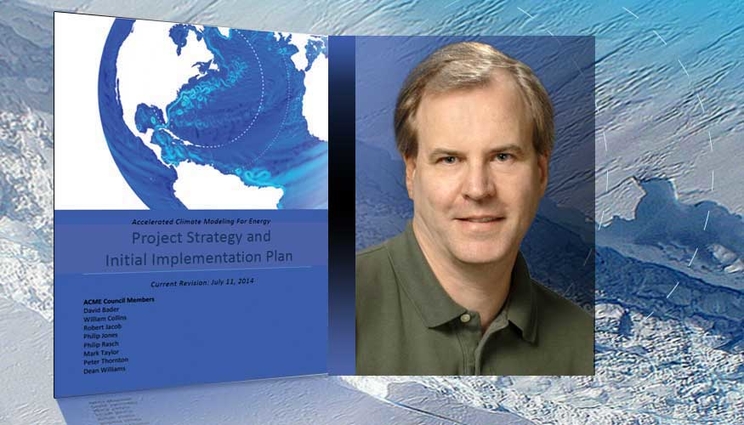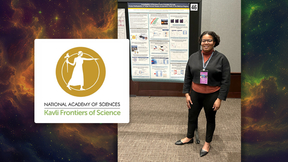Energy secretary honors LLNL climate scientist
 (Download Image)
Energy Secretary Ernest Moniz has awarded LLNL climate scientist David Bader with a DOE Secretarial Honor Award for his leadership of the Accelerated Climate Modeling for Energy (ACME) project.
(Download Image)
Energy Secretary Ernest Moniz has awarded LLNL climate scientist David Bader with a DOE Secretarial Honor Award for his leadership of the Accelerated Climate Modeling for Energy (ACME) project.
Energy Secretary Ernest Moniz has awarded LLNL climate scientist David Bader with a DOE Secretarial Honor Award for his leadership of the Accelerated Climate Modeling for Energy (ACME) project.
The Secretarial Honor Awards are the department's highest form of non-monetary employee recognition. Individual and team awardees are selected by the Secretary of Energy.
William Collins of Lawrence Berkeley National Laboratory and Mark Taylor of Sandia National Laboratory, California were co-winners of the award.
This award is bestowed on a group or team of employees who accomplished significant achievements on behalf of the department.
Launched in July 2014, ACME is a multi-institutional effort involving eight DOE national labs, the National Center for Atmospheric Research, four academic institutions and one private-sector company. ACME is intended to accelerate the development and application of fully coupled, state-of-the-science Earth-system models for scientific and energy applications.
The plan is to exploit advanced software and next-generation high-performance computing (HPC) architectures as they become available at DOE Leadership Computing Facilities. The three awardees constitute the executive council of the ACME management structure: Bader, LLNL’s climate program leader, is the chair of the council; Collins is the chief scientist; and Taylor is the chief computational scientist.
ACME’s initial focus will be on three climate change science drivers and corresponding questions to be answered during the project's initial phase:
- Water Cycle: How do the hydrological cycle and water resources interact with the climate system on local to global scales? How will more realistic portrayals of features important to the water cycle (resolution, clouds, aerosols, snowpack, river routing, land use) affect river flow and associated freshwater supplies at the watershed scale?
- Biogeochemistry: How do biogeochemical cycles interact with global climate change? How do carbon, nitrogen and phosphorus cycles regulate climate system feedbacks, and how sensitive are these feedbacks to model structural uncertainty?
- Cryosphere Systems: How do rapid changes in cryospheric systems, or areas of the Earth where water exists as ice or snow, interact with the climate system? Could a dynamical instability in the Antarctic Ice Sheet be triggered within the next 40 years?
Bader has worked in the national lab arena since 1985, starting his career at Pacific Northwest National Laboratory first as a research scientist and then moving up to a senior research scientist and eventually a project manager. From 2003-2009, he was director of the Program for Climate Model Diagnosis and Intercomparison (PCMD) at Lawrence Livermore. In 2009 he moved to Oak Ridge National Laboratory where he was the founding deputy director of the lab’s Climate Change Science Institute and was assigned for six months as a senior research adviser for Climate Change to the DOE Office of Science Director. He returned to Livermore in 2011 as Climate Program leader.
The Secretary’s Awards Program is designed to recognize the career service and contributions of DOE employees to the mission of the department and to the benefit of the nation. The program is comprised of three award types.
Contact
 Anne M. Stark
Anne M. Stark
[email protected]
(925) 422-9799
Related Links
Accelerated Climate Modeling for EnergyNew project is the ACME of addressing climate change
Atmospheric, Earth, and Energy Division
Tags
Physical and Life SciencesCareers
Featured Articles







